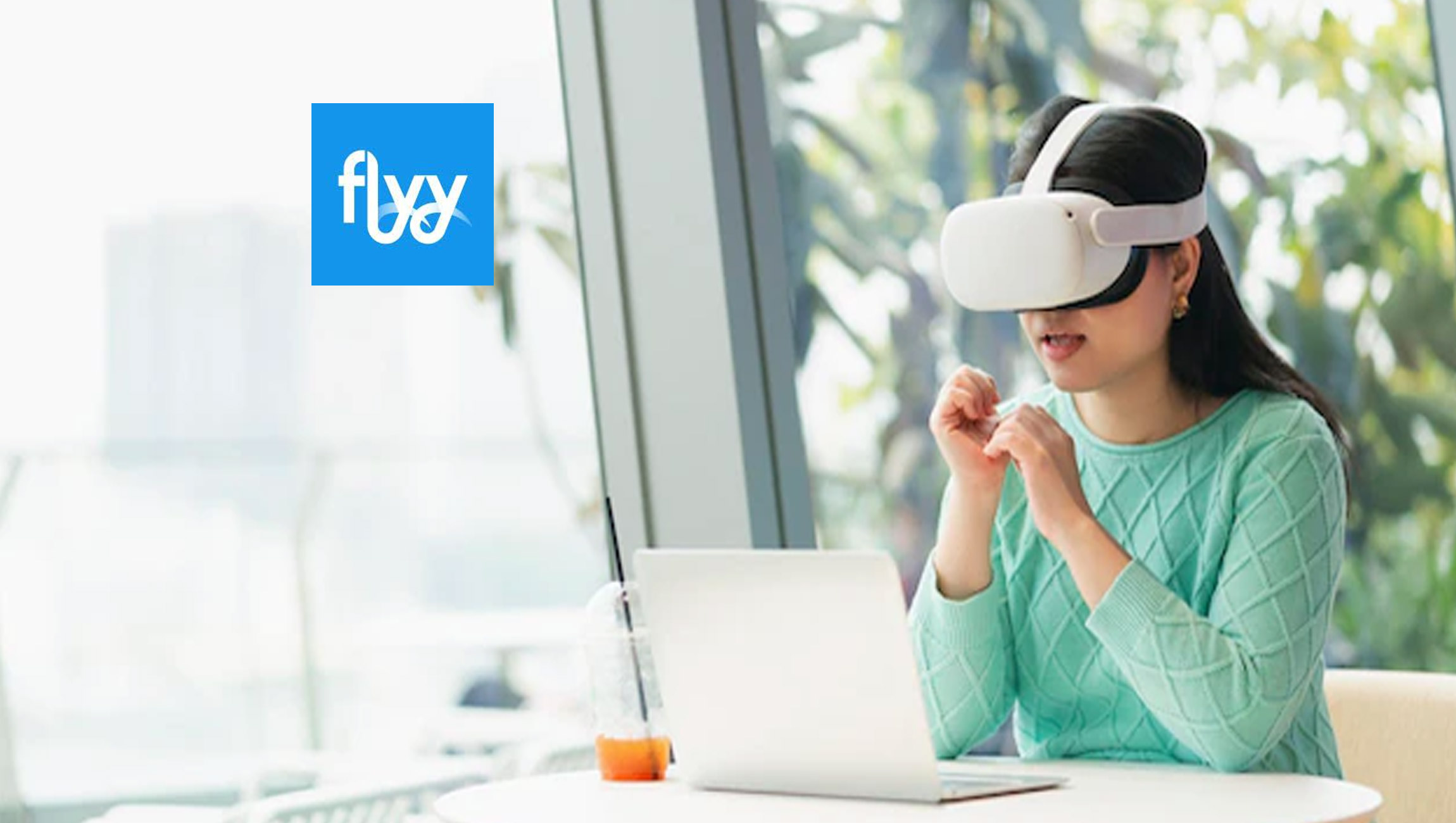AdTheorent/Harris Poll Survey Data Shows that Seeing Mobile Advertising for Medications Would Drive 71% of Consumers to Ask Their Doctor About a Prescription Medication and 61% to Purchase an Over-the-Counter Medication
AdTheorent Holding Company, Inc., a leading programmatic digital advertising company using advanced machine learning technology and privacy-forward solutions to deliver measurable value for advertisers and marketers, today announced results from the AdTheorentRx Healthcare Advertising Trends Report (available for download below), based on research conducted online on behalf of AdTheorent by The Harris Poll among more than 2,000 U.S. adults. The AdTheorentRx Report identifies key trends related to consumers’ interaction with digital advertising during the patient journey, the role of mobile and Connected TV specifically, as well as the importance of proper targeting and ad relevance. The Report also highlights important factors which drive patients to consult doctors about prescription medication, or purchase an over-the-counter medication. Notably, the Report contains insights about the types of ads which motivate action, and consumers’ attitudes toward education from health and pharmaceutical companies as well as non-traditional methods of health management.
According to eMarketer, digital ad spend in the healthcare and pharmaceutical industry is expected to grow 11.5% in 2022, reaching $13.63 billion. As competition in the industry continues to increase, it is crucial for healthcare and pharmaceutical brands to gain consumer mind-share and wallet-share. The AdTheorentRx Healthcare Advertising Trends Report shows that a majority of American consumers (72%) use their digital devices throughout the patient journey and that appropriate engagement drives desired actions and purchase intent, if executed the right way. Proper targeting is important to building positive brand associations, with many consumers (52%) saying that they are comfortable receiving ads based on non-personal information, and a similar proportion (56%) saying that they are more likely to respond to a medication ad when the ad is relevant to them. Conversely, more than half of consumers (55%) find it annoying to be retargeted with ads for a related medication after visiting a health website and a similar proportion (52%) are not comfortable with receiving targeted ads based on browsing activity.
Marketing Technology News: Mimecast Opens Office in Singapore to Continue Expansion in APAC
DIGITAL DOMINATES THE PATIENT JOURNEY: Majority of Consumers are turning to their digital devices throughout the patient journey
- 72% of consumers use their mobile devices to complete health-related tasks along their patient journey, such as:
- Research health conditions (40%)
- Research medications (35%)
- Research or find a doctor (30%)
- Find the nearest pharmacy (26%)
- Access medical app(s) (25%)
- Access an online pharmacy (25%)
- Attend telehealth appointments (23%)
- 75% of consumers turn to their computers (laptop or desktop) for healthcare services, such as:
- Research health conditions (45%)
- Research medications (41%)
- Research or find a doctor (33%)
- Access an online pharmacy (26%)
- Attend telehealth appointments (23%)
- Access medical app(s) (23%)
- Find the nearest pharmacy (20%)
- Consumers discover new prescription medications by:
- Talking with a doctor or healthcare provider (54%)
- Ads on a TV or Connected TV (41%)
- A pharmacist (29%)
- Digital ads (27%)
- Word of mouth (24%)
- Magazine ads (14%)
- Radio ads (11%)
- Consumers discover new over-the-counter medications by:
- Ads on a TV or Connected TV (49%)
- Talking with a doctor or healthcare provider (39%)
- Word of mouth (34%)
- Digital ads (32%)
- A pharmacist (29%)
- Magazine ads (16%)
- Radio ads (12%)
MOBILE AND CTV ADS DRIVE RESEARCH, ENGAGEMENT AND PURCHASE: Multiple engagements across devices drive increased engagement
- Mobile advertising drives actions — after seeing an ad for a medication on a mobile device consumers are very or somewhat likely to:
- Ask their doctor about a prescription medication (71%)
- Research an over-the-counter (OTC) medication (66%)
- Purchase an OTC medication (61%)
- Connecting with patients on Connected TV: after viewing an ad for a medication on CTV, consumers are very or somewhat likely to:
- Ask their doctor questions about a prescription medication (67%)
- Research an OTC medication (62%)
- Purchase an OTC medication (58%)
- Scan a QR code to get more information (45%)
- 71% of consumers are more likely to take an action if they receive the same medication ad on multiple devices; the actions they would take include:
- Ask their doctor about the medication (31%)
- Remember the medication (27%)
- Look for more information on the medication (24%)
- Pay attention to the ad (22%)
- Visit the brand’s website (21%)
- Consider purchasing the over-the-counter medication (20%)
- Purchase the over-the-counter medication (13%)
- Request a prescription from their doctor (12%)
- Medication ads which most effectively motivate action are ads that:
- Present medication benefits (51%)
- Talk about a medical condition with a link to a branded medication webpage (45%)
- Feature a rebate/special offer for the medication (41%)
- Are interactive (e.g., allows users to select a symptom, scroll through images, take a quiz, find a treatment plan) (38%)
- Use more visuals than text (30%)
- Are tailored to a person’s location (29%)
Marketing Technology News: MarTech Interview with Jamie Hill, CEO at adMarketplace
ADS MUST BE PROPERLY TARGETED AND RELEVANT: Customization is key to drive purchase intent, but retargeting based on browsing activity may alienate consumers
- 55% of consumers find it very/somewhat annoying when they visit a health website and then repeatedly receive ads for a related medication
- 52% of consumers are not at all or not very comfortable receiving ads based on browsing activity
- 52% of consumers are very/somewhat comfortable receiving ads based on non-personal information (e.g., signals which include device type, time of day, operating system, publisher and keyword data, etc.)
- The top three scenarios that would make a consumer more likely to respond (e.g., click on an ad, ask doctor questions, research medication) to an ad for a medication are:
1. The ad is relevant to the consumer (56%)
2. The ad conveys a relevant message and is delivered at the right time (32%)
3. The ad is received at a moment when the consumer can give it attention (23%)
PAYMENT: Many consumers would use a debit or credit card for medication purchases, and cryptocurrency could be an emerging payment method
- Debit card (58%)
- Credit card (51%)
- Cash (45%)
- Healthcare spending account/flexible spending account (23%)
- Cryptocurrency (9%)
TRUSTED SOURCE: Consumers see value in education from Pharmaceutical companies
- 74% say it would be valuable to receive educational information from a pharmaceutical company about a health condition that they or someone in their household has
- 70% would trust educational information from pharmaceutical companies
- 69% value having a pharmaceutical company to turn to for educational information throughout their patient journey
NON-TRADITIONAL METHODS: Majority of consumers are open to various alternative methods for health management
- Precision medicine (71%)
- Natural remedies (71%)
- Telemedicine (66%)
- Alternative medicine (64%)
- Wearable technology (59%)
“At AdTheorent, our core business premise is that it is possible to drive campaign performance and tangible business results while respecting consumer privacy interests and sensitivities,” said Jim Lawson, CEO of AdTheorent. “AdTheorent uses advanced machine learning and statistics to drive superior digital ad campaign performance for healthcare and pharmaceutical brands and advertisers – measured by important business outcomes such as prescription fills, online and offline sales, as well as deep-funnel site actions.” Continued Lawson, “AdTheorent stands out because our targeting practices leverage only non-sensitive data and are not dependent on profiling and targeting specific users based on their web browsing or other behaviors, which is crucial for healthcare and pharmaceutical brands. We commissioned this research to gain additional insights about pharmaceutical and healthcare consumers as we continue to refine our product offerings and solutions, and we are excited to leverage these learnings in future campaigns.”
Marketing Technology News: Virtual and Hybrid Events to Take Center Stage in 2022











